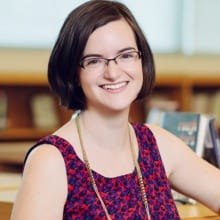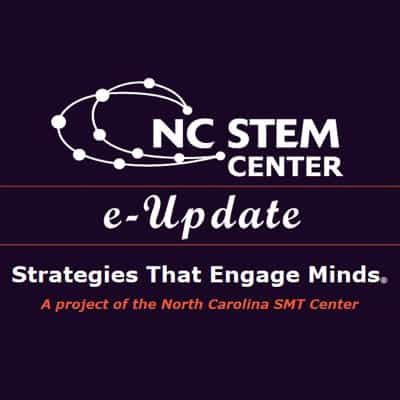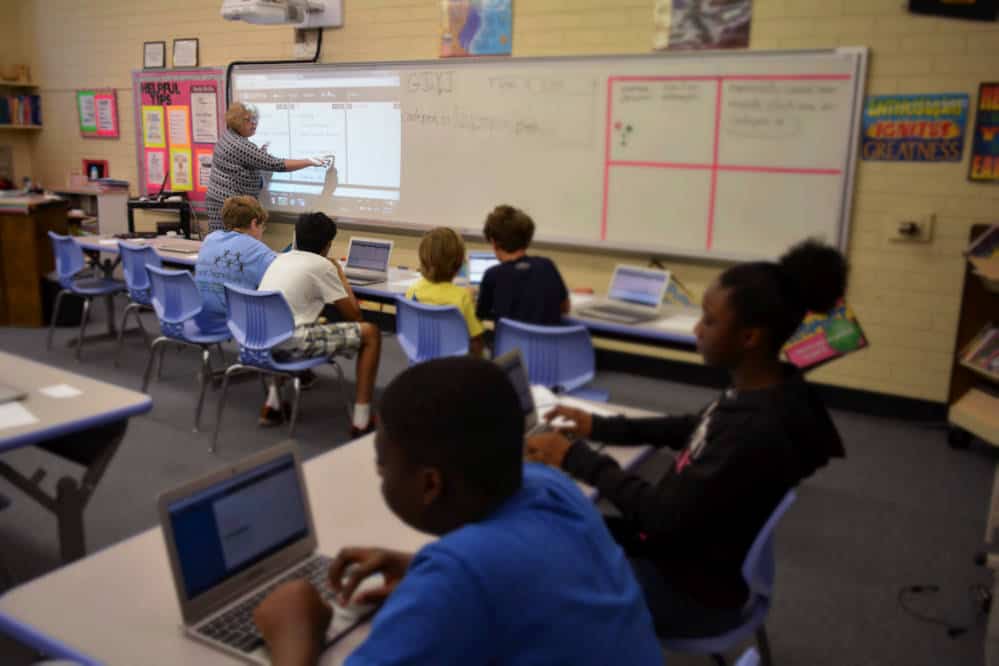

For one week in June, 45 middle and high school students gathered in classrooms at Rocky Mount Academy to learn the basics of making a website. This was RMA Code Academy, the first instance of programmer Will Haley’s dream of an open source coding camp.
Taught by Dianne Boseman, a retired computer engineering and programming teacher of 23 years from Nash Community College, the students came from Rocky Mount Academy as well as area public schools. They learned the basics of HTML, CSS, and Javascript, along with hearing from industry professionals from across the state.
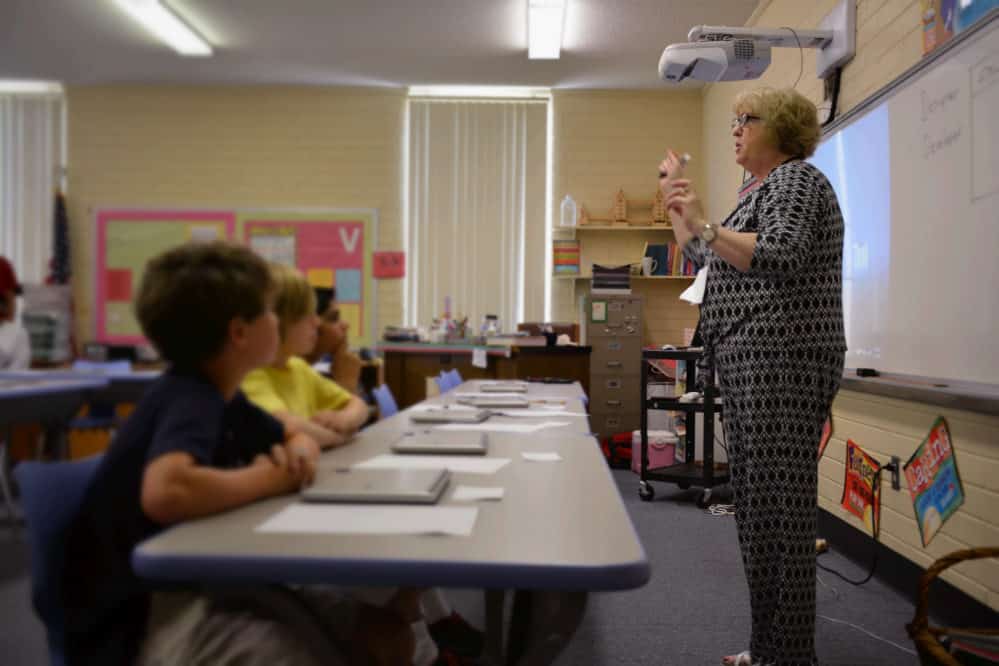

Isis, a 12-year-old from Rocky Mount Middle School, told me she wanted to go to the camp because she likes computers. In a computer technology elective at her school last year, she made her very first website. Her favorite subject in school is science, but what she really loves is to make PowerPoint presentations. “I’ll just wake up one morning with an idea and be like, hmm, I gotta make a PowerPoint about that.”
This passion for learning is mirrored in Boseman, who taught herself how to code many years ago. “I started going to focus groups, conferences, really anything where I had the opportunity to learn more.”
The coding camp is about giving interested students the opportunity to immerse themselves in programming, regardless of their backgrounds.
Last December, Haley coordinated and taught the Hour of Code for pre-K through 5th grade classes at Rocky Mount Academy. Hour of Code is an initiative started by Code.org to introduce children to computer science and encourage them to learn how to program.
Because of the success of Hour of Code, Rocky Mount Academy approached Haley about teaching a coding camp over summer break. Unable to find an affordable model to use for RMA Code Academy, Haley created this innovative open source coding camp with the hope that other communities will replicate it. The camp is based on open source principles, which means anyone can reproduce and modify the material for their own use. The curriculum, lesson plans, and even the website and registration process are available for others to use to set up their own coding camps.
He hopes to make it easy to roll out these camps in other communities across North Carolina. “There is a desire to do this, but many times no one knows how to get started,” Haley says. With the infrastructure set up, the hope is that the hard part is taken care of.
Others who want to launch a coding camp would only need to arrange classroom space, internet access, an instructor, and guest speakers.
Rocky Mount Academy provided Chromebooks for students to use in the camp. Haley hopes to eventually have a set of Chromebooks that would be available for loan to coding camps across the state to provide to students without laptops of their own.
The great part about this open source coding camp structure is that it is very low budget. RMA Code Academy cost less than $2,500 to run, and it was all covered by sponsors and tuition. All the lessons and applications used in the class are free. Tuition was $50, and sponsors provided scholarships to students who otherwise wouldn’t have the opportunity to attend a camp like this.
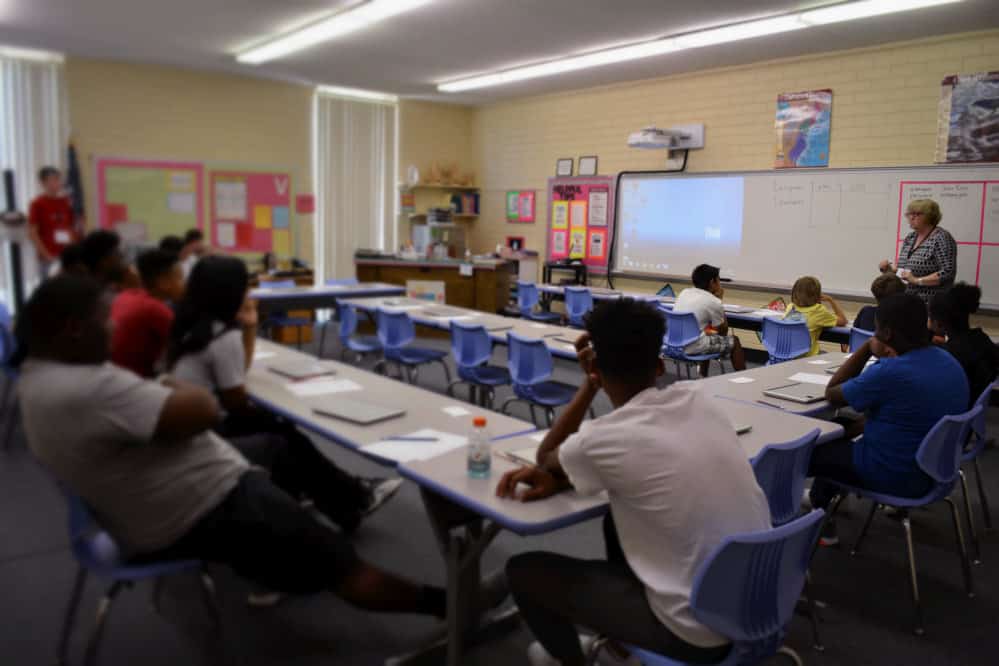

Haley worked with Communities in Schools of the Rocky Mount Region to spread the word about the camp and distribute scholarships to students from low-income families. In the end, 24 students — more than half of the attendees — received scholarships. Many of these were high schoolers who came from the Boys & Girls Club of Nash/Edgecombe Counties.
Juquan, a 17-year-old from Rocky Mount High School, has been working with younger kids at the Boys & Girls Club and came to RMA Code Academy for a learning experience. In a technology and engineering design class at his high school, he enjoyed building and programming Lego robots. Juquan is passionate about music, poetry, fashion, and design and hopes to go to a college with a good music program.
Using tools that professional web developers use every day, the students get a taste of what it is like to be a programmer. The templates for each lesson are on CodePen, and one of the first things the students learned how to do was to fork the code — or copy the code into their own CodePen account so they could modify it. Simply learning about CodePen and the opportunities that platform gives for developers to sandbox — or play with code in an isolated testing environment — gives the students a leg up. “If I got a link to a CodePen from a student looking for an internship, I would consider them immediately because it shows they’re familiar with the industry,” says Haley.


Connor, an 11-year-old student from Rocky Mount Academy, wanted to go to the camp because he loves math and thought programming would relate to his interests. He was thrilled when on the second day, his friend and classmate Ishan showed him how to change the color of text on his new page using CSS. They weren’t scheduled to learn CSS until the next day, but the students were enjoying sharing tips and tricks with each other regardless — just like developers do every day.
Ishan, a 12-year-old, learned HTML and CSS two years ago on codeacademy.com. As someone who loves computers and programming, he saw the camp as an opportunity to immerse himself in his passion.
Haley is continuing to refine the curriculum and lesson plans for future camps. He hopes to connect with college students or young professional programmers who would be interested in teaching future coding camps anywhere across North Carolina.
Editor’s note: EducationNC provided five scholarships for students to attend RMA Code Academy.
